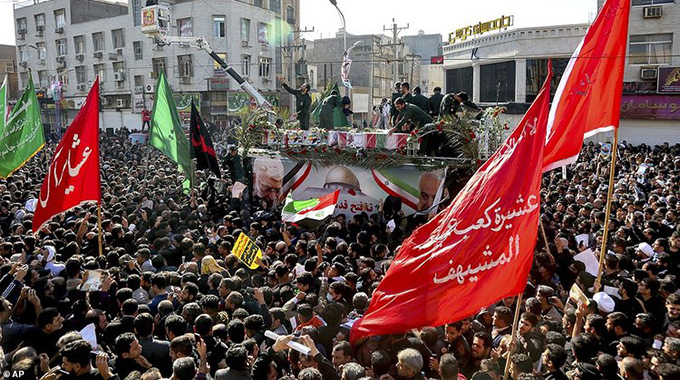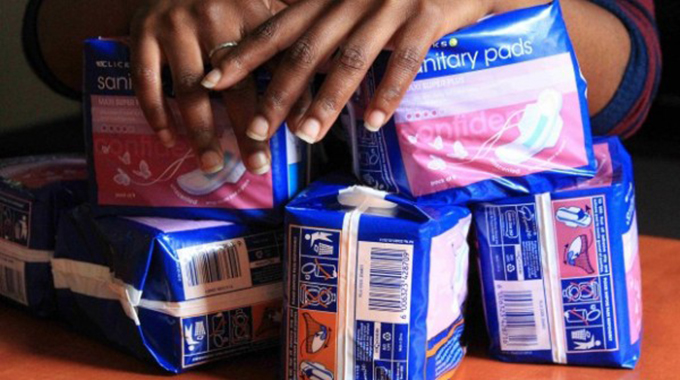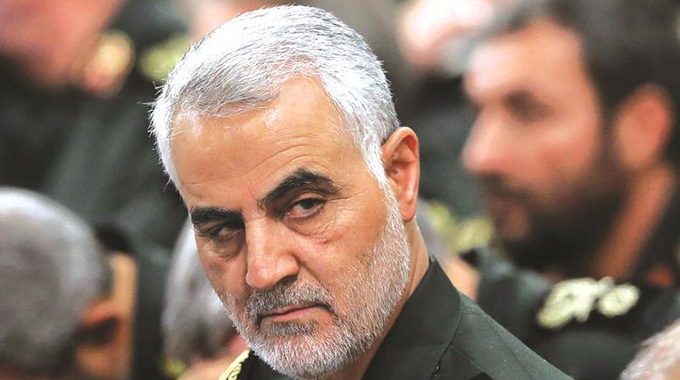Thousands pay respects to slain Maj-Gen Soleimani

The remains of Irain’s slain Major-General Qassem Soleimani, whose assassination by the US was confirmed earlier last Friday, returned to Iran yesterday from Iraq and were flown to the city of Ahvaz in the country’s southwest, the official IRIB news agency reported.
Iran cancelled a ceremony to honour Soleimani in the capital Tehran due to an overwhelming turnout by mourners in the second city Mashhad, the Revolutionary Guards said.
“Considering the glorious, intense and million-man presence of the revolutionary people of Mashhad in the ceremony to bid farewell to Islam and Iran’s great general Qasem Soleimani and since the programme is still continuing. . .it is not possible to hold the event in Tehran,” the Guards said.
The statement called on people to attend a ceremony scheduled to take place at Tehran University today.
Tens of thousands of mourners clad in black filled the streets of Mashhad and Ahvaz to pay their respects to Soleimani, the country’s most powerful and revered military commander who was assassinated by a US air strike in Iraq.
Several others were also killed in Friday’s strike on a convoy at Baghdad airport, including the Iranian-backed Iraqi militia leader Abu Mahdi al-Muhandis.
In live footage aired on Sunday on Iranian state television, tens of thousands of mourners marched through Ahvaz holding up portraits of Soleimani, seen as a hero for his role in the Iran-Iraq war in the 1980s and for spearheading Iran’s Middle East operations as chief of the Iranian Revolutionary Guard Corps’s (IRGC) overseas forces.
Authorities planned to take Soleimani’s remains to the holy city of Mashhad later yesterday, and to the holy city of Qom today, for public mourning processions, then to his hometown of Kerman for burial tomorrow.
Meanwhile, Iraq’s parliament yesterday passed a resolution calling on the government to expel foreign troops from the country as tensions escalate between the United States and Iran on Iraqi soil following the killing of Soleimani.
“The government commits to revoke its request for assistance from the international coalition fighting Islamic State due to the end of military operations in Iraq and the achievement of victory,” the resolution read.
“The Iraqi government must work to end the presence of any foreign troops on Iraqi soil and prohibit them from using its land, airspace or water for any reason.”
Parliament resolutions, unlike laws, are non-binding and the move would require new legislation to cancel the existing agreement.
Earlier, Iraqi Prime Minister Adel Abdul Mahdi also called on Parliament to end foreign troop presence in the country.
In an address to Parliament ahead of the vote yesterday, Abdul Mahdi said the decline of the Islamic State of Iraq and the Levant (ISIL or ISIS), over which Baghdad declared victory in December 2017, put an end to the main reason for the presence of US forces in the country.
“Iraq has two options,” he said, adding that the country can either put an immediate end to the presence of foreign troops or reconsider a draft resolution that ensures the presence of US troops is tied to training Iraqi security forces in the fight against ISIL.
Ahead of the vote, chants of: “No, no, America. . .long live Iraq”, rang out inside the hall.
Hezbollah leader Hassan Nasrallah said the US army will “pay the price” for killing Soleimani and Al-Muhandis.
“The American army killed them and it will pay the price,” he said in a televised speech. “The only just punishment is (to target) American military presence in the region: US military bases, US warships, each and every officer and soldier in the region.”
Nasrallah said Soleimani’s killing marked a new phase in the history of the Middle East.
Referring to the date of Soleimani’s killing, Nasrallah said it was a “date separating two phases in the region. . .it is the start of a new phase and a new history not just for Iran or Iraq but the whole region”.
He was speaking at the start of a rally in the Hezbollah-controlled southern suburbs of Beirut, Lebanon to commemorate Soleimani.
Saudi Arabia was not consulted over the US air strike that killed Soleimani, as the kingdom sought to defuse soaring regional tensions, a Saudi official told AFP news agency, requesting anonymity.
“The kingdom of Saudi Arabia was not consulted regarding the US strike,” the official said. “In light of the rapid developments, the kingdom stresses the importance of exercising restraint to guard against all acts that may lead to escalation, with severe consequences.”
Oman has urged the US and Iran to utilise diplomatic channels to resolve issues and called on the international community to increase their efforts to achieve security and stability in the region, according to a statement carried by state media.
In Istanbul, Turkey, protesters yesterday gathered outside the US Consulate to demonstrate against Soleimani’s killing.
The protesters, some carrying “Down with America” signs and portraits of Soleimani were watched by police during the rally.
Pope Francis called for dialogue and restraint while speaking at the Sunday Angelus prayer at the Vatican.
The pope did not mention Iran by name, but spoke of a terrible air of tension that could now be felt in many parts of the world.
“I call on all sides to keep the flame of dialogue and self-restraint alight and ward off the shadow of hostility,” he said.
“War only brings death and destruction.”
US Secretary of State Mike Pompeo defended the intelligence assessment that led to the air strike against Soleimani, saying the strikes were lawful and any future strikes would also be lawful.
“The intelligence assessment made clear that no action – allowing Soleimani to continue his plotting and his planning, his terror campaign – created more risk than taking the action that we took last week,” Pompeo said in an interview with ABC.
Pompeo would not say whether he had been in contact with Iranian officials but said there was no doubt in his mind that Iran “gets clearly the message from the American leadership”.
“We’ve told the Iranian regime: enough. You can’t get away with using proxy forces and think your homeland will be safe and secure. We’re going to respond against the actual decision-makers – the people who are causing this threat from the Islamic Republic of Iran,” Pompeo said. – Agencies










Comments